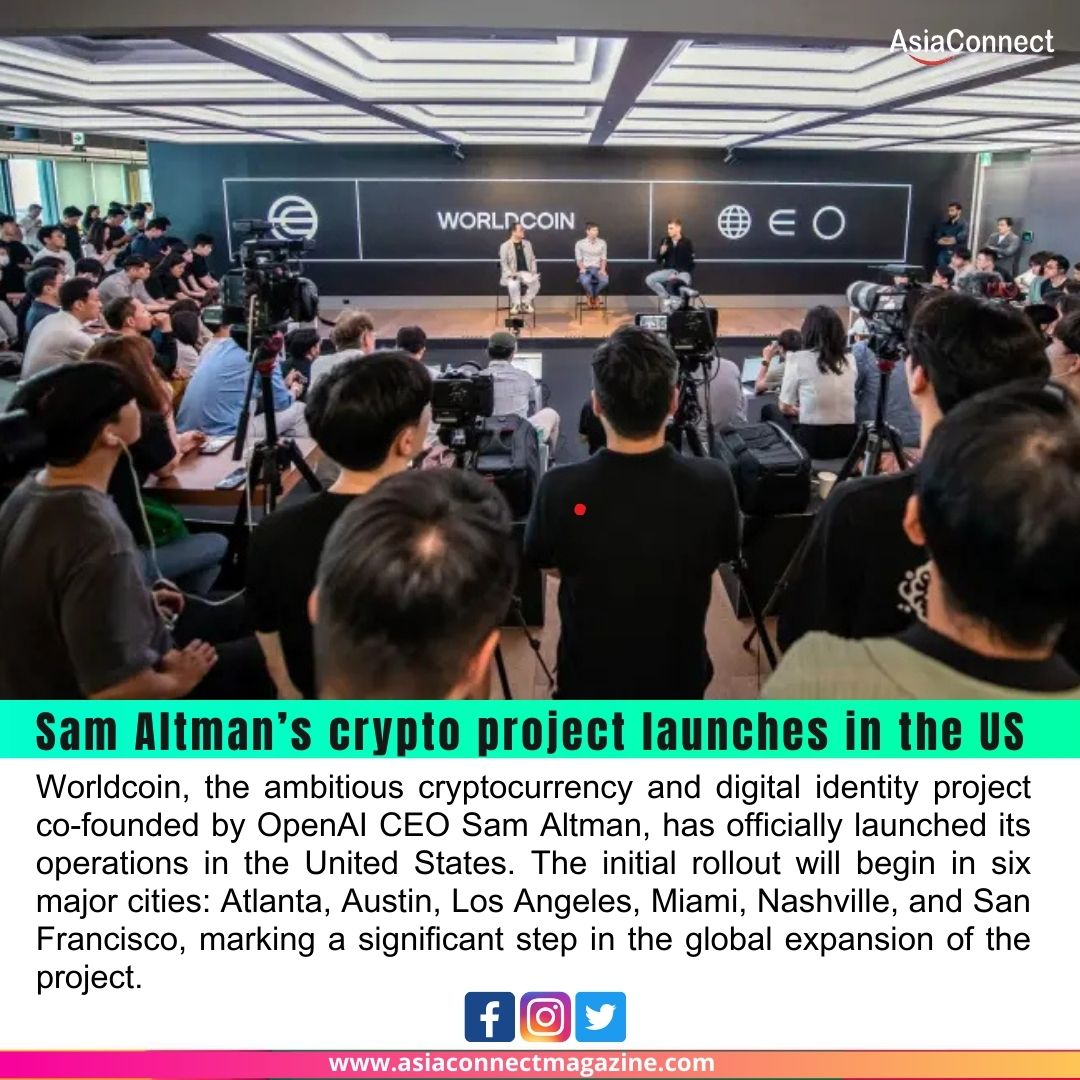Worldcoin, the ambitious cryptocurrency and digital identity project co-founded by OpenAI CEO Sam Altman, has officially launched its operations in the United States. The initial rollout will begin in six major cities: Atlanta, Austin, Los Angeles, Miami, Nashville, and San Francisco, marking a significant step in the global expansion of the project.
This launch comes amid growing global interest—and scrutiny—of blockchain-based digital identity solutions and universal digital currencies. With Altman’s influence and a unique approach to identity verification, Worldcoin is aiming to revolutionize how individuals access and participate in the digital economy.
What is Worldcoin?
Worldcoin is a crypto-based initiative that combines blockchain technology, a digital ID system, and a universal basic income (UBI) framework. At the heart of its model is the idea of proving personhood through a biometric device called the Orb, which scans an individual’s iris to confirm they are a unique human being. Once verified, users receive a World ID, which enables them to access various digital services and claim free Worldcoin tokens.
The project is backed by Tools for Humanity, a company co-founded by Sam Altman, and has already onboarded millions of users globally in countries across Europe, Latin America, and Africa. The U.S. rollout is expected to test the platform’s viability in a highly regulated and technologically mature market.
Why the U.S. Launch Matters
Launching in the U.S. is a bold move, especially given the country’s regulatory environment around cryptocurrency and biometric data. Worldcoin’s entry into major American cities signals its commitment to bringing blockchain innovation to mainstream users, while also raising critical questions around data privacy, surveillance, and financial inclusion.
Each of the selected cities has a strong base of tech-savvy users, startup ecosystems, and diverse populations—making them ideal testing grounds for the adoption of Worldcoin’s vision.
Controversy and Criticism
Despite its bold vision, Worldcoin has not been free from controversy. Privacy advocates have raised concerns about collecting biometric data such as iris scans, fearing potential misuse or security breaches. Although the company claims the iris scans are converted into anonymized codes and not stored as images, regulators and watchdogs are closely monitoring the process.
In some countries, including parts of Europe and Africa, local authorities have paused or restricted Worldcoin operations over legal and ethical concerns. The U.S. rollout is likely to face similar scrutiny, especially around compliance with data protection laws like the California Consumer Privacy Act (CCPA).
What’s Next for Worldcoin?
With the U.S. expansion now underway, Worldcoin plans to continue scaling its digital identity infrastructure and cryptocurrency distribution. The team behind the project sees it as a way to empower individuals in the digital age, particularly in a future where AI-generated content and bots could blur the line between real and fake identities.
Whether Worldcoin can successfully navigate regulatory challenges and gain widespread trust remains to be seen, but its arrival in the U.S. represents a major milestone in the evolving conversation around crypto, identity, and universal access to finance.





